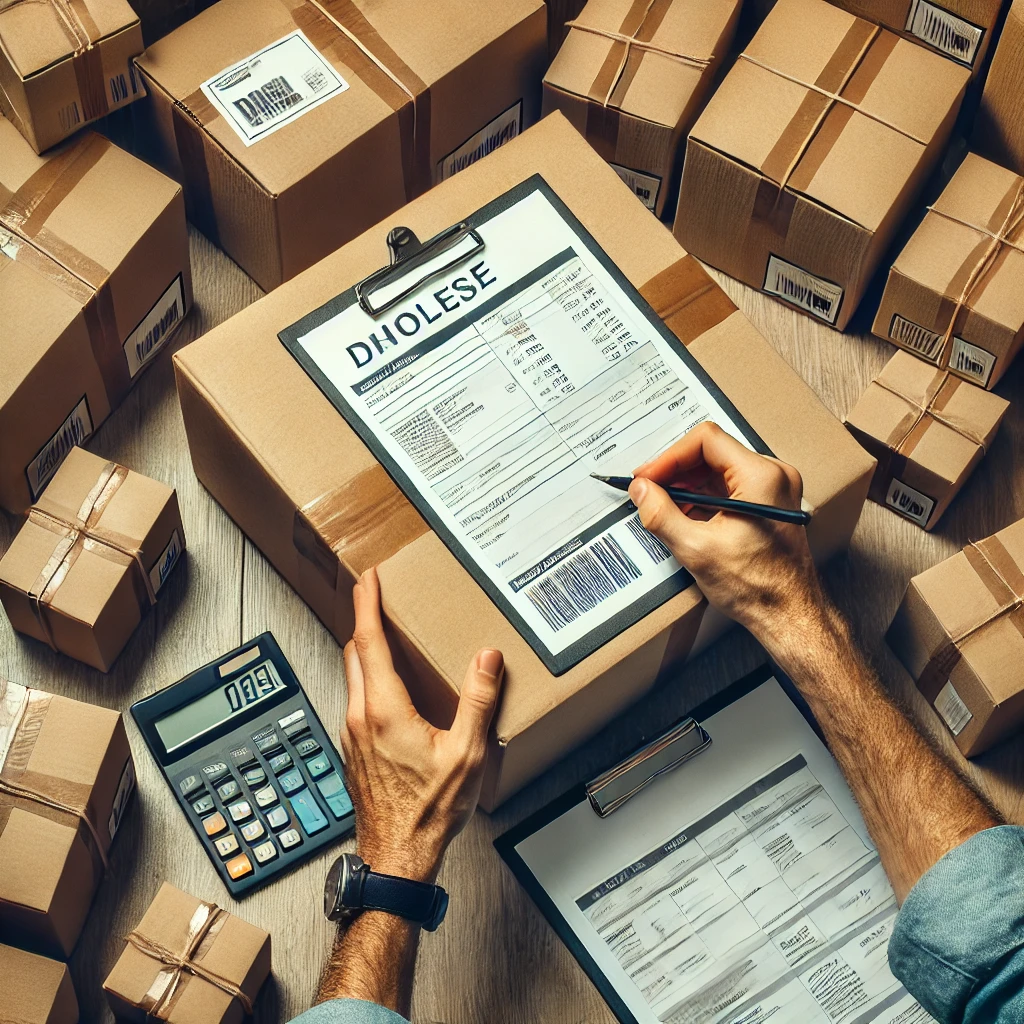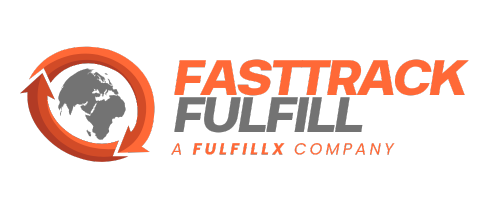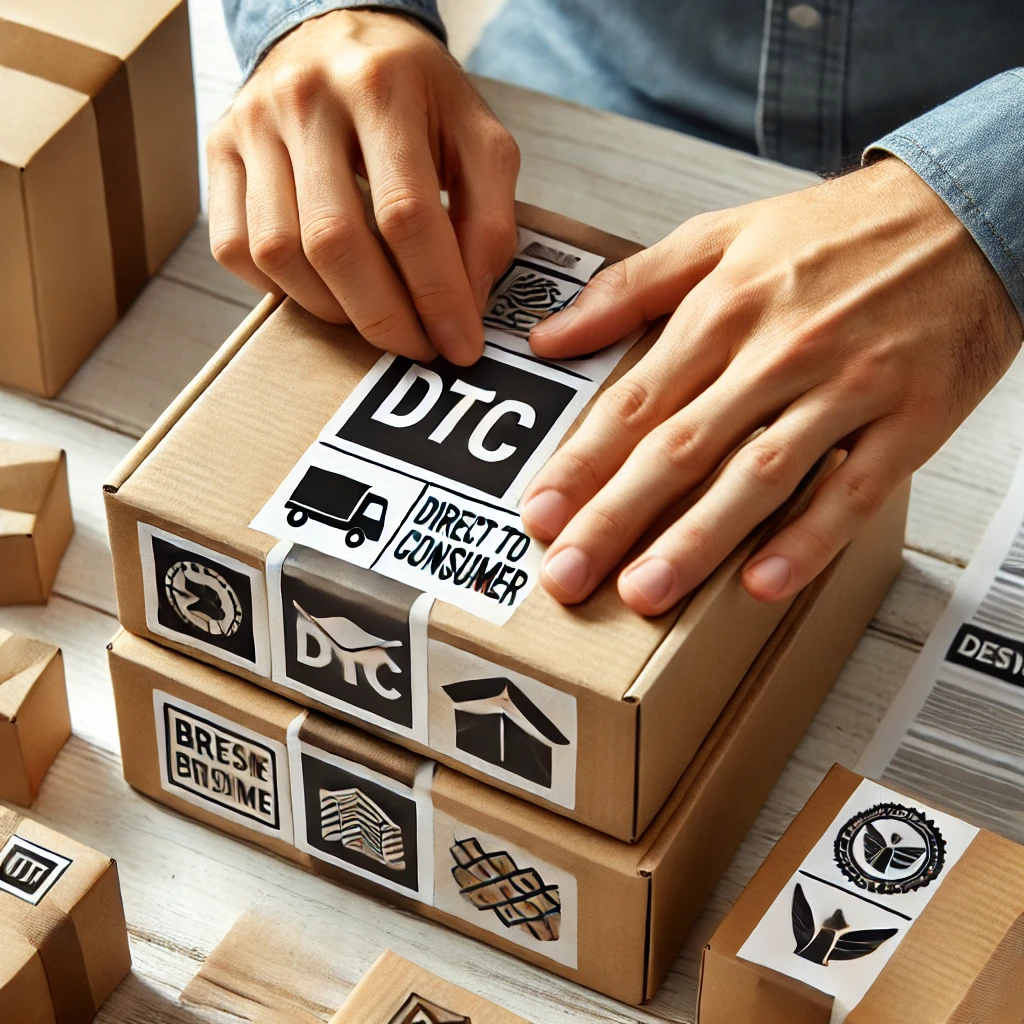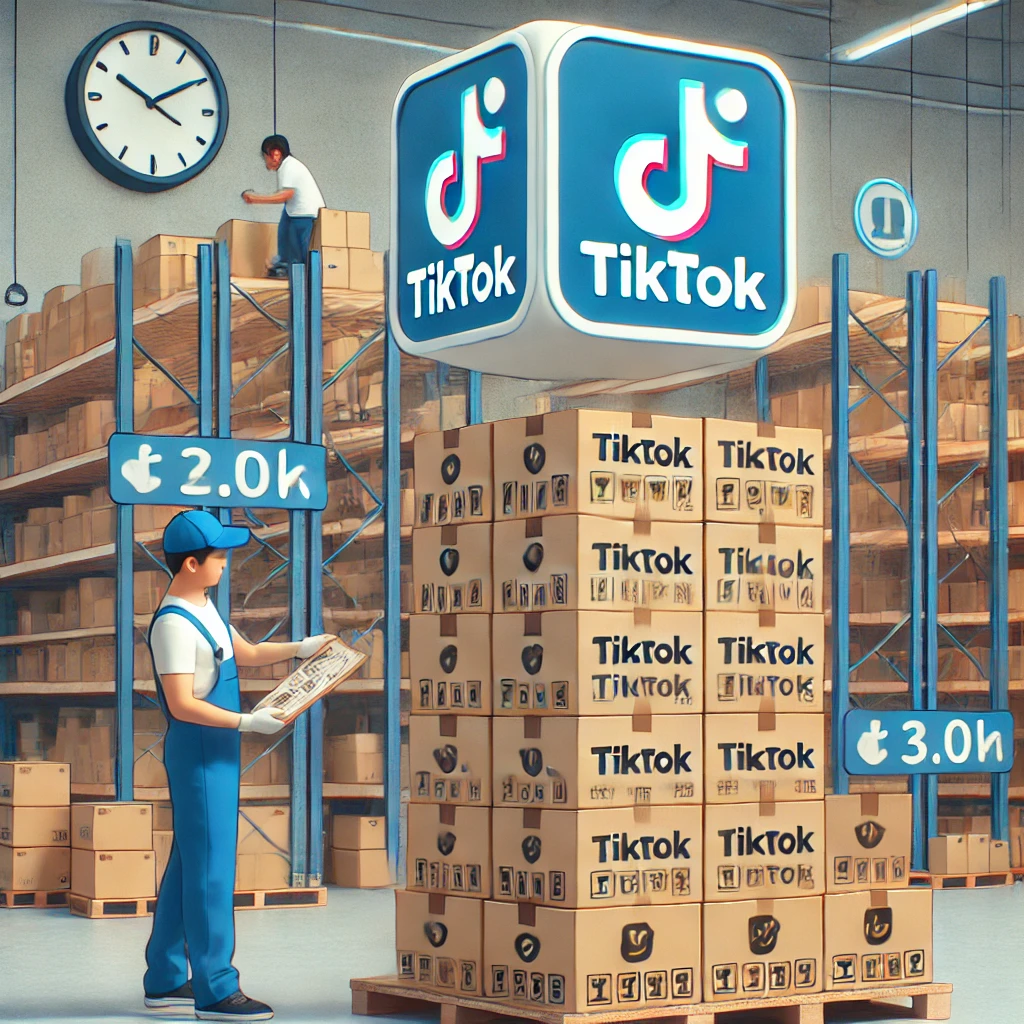B2B Fulfillment: How to Optimize Bulk Shipping and Wholesale Orders
Managing bulk orders in business-to-business (B2B) operations can be incredibly complex. With large volumes of products, multiple locations, and high expectations for accuracy and speed, B2B fulfillment can quickly become overwhelming without the right systems in place. Whether you’re supplying retail outlets or corporate clients, ensuring timely and efficient deliveries is key to maintaining strong business relationships.
In this article, we’ll explore how B2B fulfillment services can streamline your operations, reduce errors, and help you optimize bulk order processing. We’ll break down the key strategies for improving wholesale fulfillment, explore B2B logistics solutions, and show you how working with a third-party logistics provider (3PL) can transform your supply chain management.
1. Understanding B2B Fulfillment
What Is B2B Fulfillment and Why Is It Unique?
B2B fulfillment, or business-to-business fulfillment, refers to the process of managing and shipping products between businesses, often in bulk. Unlike direct-to-consumer (DTC) fulfillment, which deals with small orders for individual customers, B2B fulfillment involves larger orders, more complex logistics, and different expectations in terms of shipping and handling.
Key Characteristics of B2B Fulfillment:
- Bulk Order Fulfillment: B2B orders often involve large quantities of products, requiring efficient packing and shipping processes to meet deadlines.
- Wholesale Fulfillment: Wholesale customers expect competitive pricing, fast turnaround, and reliable delivery, especially when ordering products to stock retail shelves.
- Multiple Locations: Business clients may need products shipped to multiple locations, further complicating the logistics process.
- Complex Delivery Schedules: B2B shipments often follow strict delivery timelines to ensure retailers and other businesses have products ready when they need them.
B2B fulfillment is essential for businesses that rely on efficient supply chains to support their customers. Managing these large-scale operations requires a deep understanding of B2B logistics solutions, including how to optimize bulk shipping.
2. Key Challenges in B2B Fulfillment
Common Obstacles to Efficient B2B Order Processing
B2B fulfillment presents a unique set of challenges that can affect the efficiency of your operations. Understanding these challenges is the first step in optimizing your business-to-business fulfillment strategy.
1. Inventory Management
When dealing with large orders, maintaining accurate inventory levels is critical. Overstocking can result in higher storage costs, while understocking can delay deliveries and strain client relationships.
2. Bulk Shipping Coordination
Bulk order fulfillment often requires coordinating shipping across multiple locations. Without efficient systems in place, it’s easy for deliveries to be delayed or misdirected, affecting your clients’ operations.
3. Order Accuracy
Wholesale fulfillment demands a high level of accuracy. A single mistake in a bulk order can have significant consequences, leading to costly returns or reorders and damaging your reputation with business clients.
4. Complex Packaging and Labeling
Business-to-business fulfillment frequently requires custom packaging and labeling, especially for products destined for retail. Managing these extra steps can be time-consuming and error-prone.
5. Strict Delivery Timelines
Businesses often operate on tight schedules, and missing a delivery window can lead to stockouts for your clients. Efficient B2B shipping services are crucial for maintaining your client relationships.
Addressing these challenges requires more than just basic fulfillment processes—it demands a strategic approach to supply chain management, optimized for the unique demands of B2B operations.

3. Strategies for Optimizing Bulk Order Fulfillment
How to Streamline Your B2B Fulfillment Process
To succeed in B2B fulfillment, you must implement strategies that address the complexities of bulk orders, wholesale fulfillment, and complex shipping requirements. Here are some key strategies to optimize your fulfillment processes:
1. Implement Advanced Inventory Management Systems
A robust inventory management system (IMS) is critical for efficient B2B fulfillment. An advanced IMS allows you to track stock levels in real-time, automatically reorder products before stock runs low, and forecast demand based on historical data.
By keeping inventory levels balanced, you reduce the risk of stockouts and overstocking, both of which can increase costs. A modern IMS can also integrate with your clients’ ordering systems, ensuring you always have the products they need, when they need them.
2. Leverage 3PL for B2B Fulfillment
Partnering with a third-party logistics (3PL) provider can transform your B2B fulfillment operations. A 3PL for B2B can manage everything from warehousing and inventory to bulk shipping and last-mile delivery. By outsourcing logistics to a specialized partner, you can focus on growing your business and maintaining relationships with your clients.
Key advantages of working with a 3PL include:
- Scalability: As your business grows, a 3PL can easily scale its operations to accommodate your needs.
- Cost Savings: 3PL providers can negotiate bulk shipping discounts and optimize transportation routes, saving you money on logistics.
- Expertise: 3PL providers specialize in B2B logistics solutions, giving you access to industry best practices and cutting-edge technology.
By integrating a 3PL into your B2B fulfillment strategy, you can streamline operations, reduce costs, and ensure timely deliveries for your clients.
Learn more about how B2B logistics solutions can streamline your operations by visiting FastTrack Fulfillment.
3. Optimize Packaging and Labeling for Wholesale Fulfillment
In business-to-business fulfillment, packaging and labeling are essential for maintaining brand consistency and ensuring your products meet the requirements of retailers and corporate clients. Optimizing these processes can help improve efficiency and reduce errors during order fulfillment.
Consider these packaging strategies:
- Custom Packaging for Retailers: For wholesale clients who will be selling your products in-store, use branded, retail-ready packaging that meets their display requirements.
- Bulk Packaging for Efficiency: For clients ordering large quantities, streamline packaging by grouping similar products together and reducing unnecessary materials.
- Automated Labeling Systems: Automated labeling systems can help ensure accuracy, particularly when shipping to multiple locations. These systems can generate custom labels based on your clients’ needs, reducing the risk of errors.
Efficient packaging and labeling can have a significant impact on the speed and accuracy of your wholesale fulfillment process.
4. Utilize Data Analytics for Better Supply Chain Management
Incorporating data analytics into your B2B fulfillment strategy allows you to monitor and optimize every aspect of your supply chain. By analyzing data from your inventory, shipping, and client orders, you can identify inefficiencies and opportunities for improvement.
Data analytics can help you:
- Forecast Demand: Predict future orders based on historical trends, helping you maintain the right inventory levels.
- Optimize Shipping Routes: Analyze shipping data to determine the most efficient transportation routes and reduce delivery times.
- Track Performance: Use key performance indicators (KPIs) to measure the effectiveness of your fulfillment operations and make informed decisions to enhance efficiency.
With data-driven insights, you can improve every aspect of your B2B fulfillment process, from order accuracy to delivery speed.

4. The Role of 3PL in B2B Shipping Services
How 3PL Providers Enhance Bulk Shipping Efficiency
As mentioned earlier, working with a 3PL provider can offer numerous benefits for optimizing your B2B fulfillment operations, especially when it comes to managing large, complex shipments. 3PL providers specialize in handling bulk orders, making them an essential part of a successful supply chain management strategy.
Benefits of Using a 3PL for B2B Fulfillment:
- Access to Advanced Technology: Many 3PL providers utilize warehouse management systems (WMS) and transportation management systems (TMS) that provide real-time visibility into your inventory and shipments.
- Improved Shipping Accuracy: A 3PL provider will have established relationships with shipping carriers and expertise in managing large, bulk shipments, reducing the likelihood of shipping errors or delays.
- Cost Efficiency: Through their high volume of shipments, 3PL providers can often negotiate better rates with carriers, passing these cost savings on to your business.
Selecting the Right 3PL for Your Business
Choosing the right 3PL for B2B fulfillment is critical. Look for a provider with experience in your industry, a strong network of carrier partnerships, and the ability to scale their services as your business grows.
Anchor text: To learn more about choosing the right 3PL, visit the B2B fulfillment services page on FastTrack Fulfillment.
5. Improving Customer Satisfaction with Efficient B2B Shipping Services
Why Timely Deliveries Are Essential in Business-to-Business Fulfillment
In B2B fulfillment, client satisfaction is closely tied to the efficiency and reliability of your B2B shipping services. Business clients expect products to arrive on time and in perfect condition, as their own operations may depend on it.
Here are a few ways to ensure timely and accurate deliveries:
1. Offer Multiple Shipping Options
Different clients will have different shipping needs. Some may require expedited shipping for urgent orders, while others may prefer cost-effective ground shipping for larger, non-urgent deliveries. Offering flexible shipping options gives your clients more control over their orders and helps build stronger relationships.
2. Ensure Accurate Order Tracking
Providing clients with real-time tracking updates for their bulk orders is crucial for transparency and trust. A robust order management system (OMS) integrated with your shipping providers can give clients visibility into their shipments, reducing inquiries and improving their overall experience.
3. Maintain Communication During the Delivery Process
Timely and proactive communication is key in B2B logistics solutions. Notify clients of any delays, changes in their shipping status, or potential issues that could affect their orders. This will help prevent dissatisfaction and allow your clients to plan accordingly.
6. The Future of B2B Fulfillment: Emerging Trends
Innovations and Best Practices for B2B Logistics Solutions
The world of B2B fulfillment is evolving as new technologies and consumer expectations reshape the landscape. Staying on top of these emerging trends can help you stay competitive and continue to provide excellent service to your business clients.
1. Automation in Warehousing
Automated warehousing solutions, such as robotics and AI-driven systems, are becoming increasingly common in B2B fulfillment. These technologies can help speed up order processing, reduce labor costs, and increase order accuracy.
2. Sustainability in B2B Shipping Services
As more companies prioritize sustainability, there’s increasing demand for eco-friendly shipping options. This can include using recycled materials for packaging, reducing waste in your supply chain, and working with carriers that offer carbon-neutral shipping options.
3. Same-Day and Next-Day Shipping for B2B Orders
Fast shipping isn’t just for consumers anymore. Many B2B clients are beginning to expect same-day or next-day shipping for urgent orders, especially in industries like retail and healthcare. Investing in faster shipping options can give you a competitive edge in the B2B market.
Bringing It All Together: Streamlining Your B2B Fulfillment for Success
As you can see, optimizing B2B fulfillment isn’t just about getting products from point A to point B—it’s about building efficient systems that keep your clients happy and your business running smoothly. By implementing the right strategies and leveraging modern logistics solutions, you’ll be well-equipped to handle the challenges of bulk orders and wholesale shipping, setting your business up for long-term success.
your B2B fulfillment process is essential for ensuring timely, accurate, and cost-effective deliveries to your business clients. By implementing advanced inventory management, partnering with a 3PL for bulk shipping, and leveraging data analytics to streamline your operations, you can improve efficiency, reduce errors, and build stronger relationships with your clients.
As the world of business-to-business fulfillment continues to evolve, staying on top of industry trends and emerging technologies will help you maintain a competitive advantage and continue growing your business.
Remember, efficient wholesale fulfillment isn’t just about getting products to your clients—it’s about delivering value, building trust, and ensuring long-term success for both your business and theirs.
Need a Custom Fulfillment Solution?
Not sure which pricing plan is right for your business? Our team is here to help! Schedule a free consultation today, and we’ll assess your needs, walk you through our services, and recommend the best fulfillment strategy tailored to your growth goals.







0 Comments